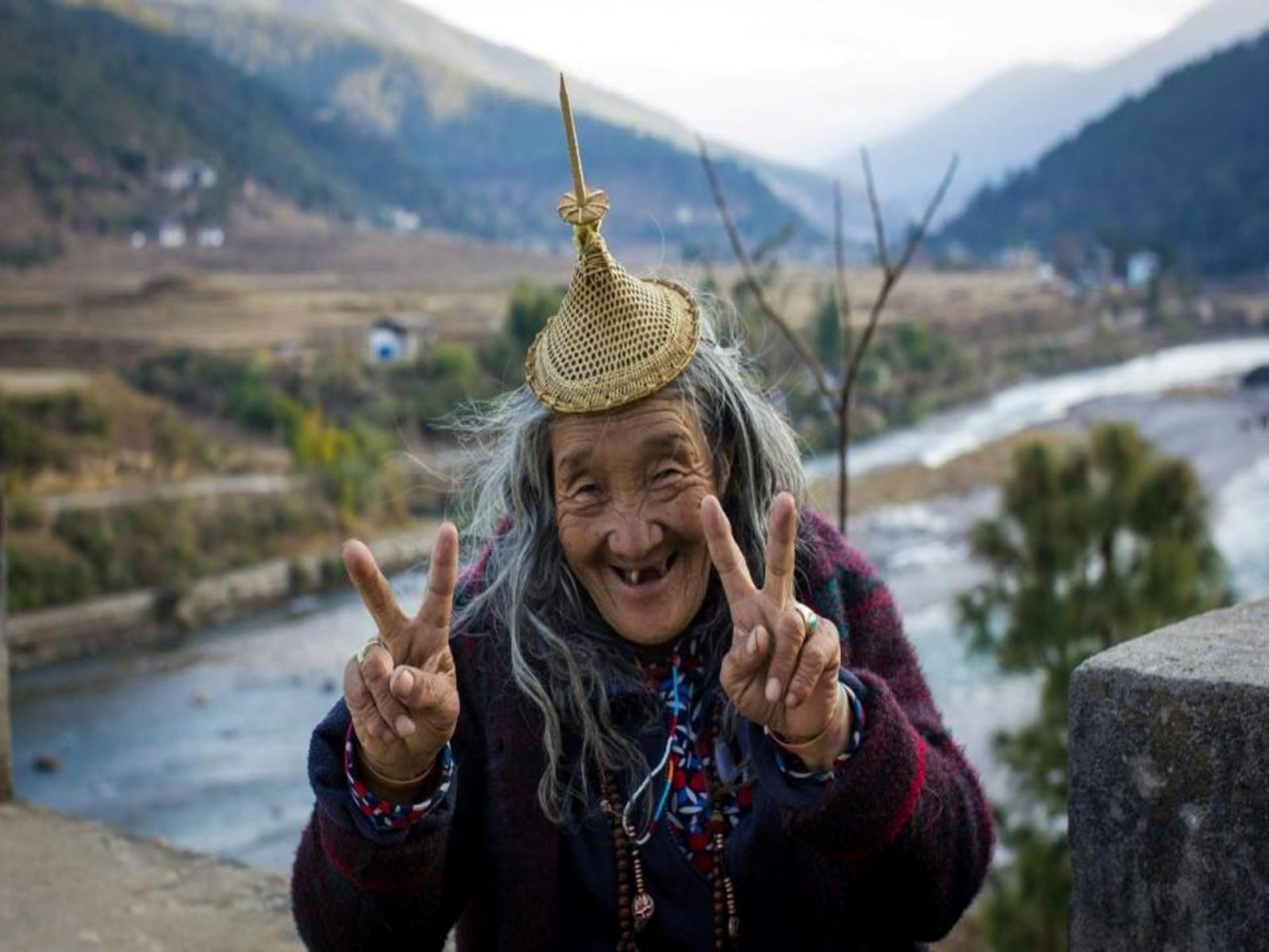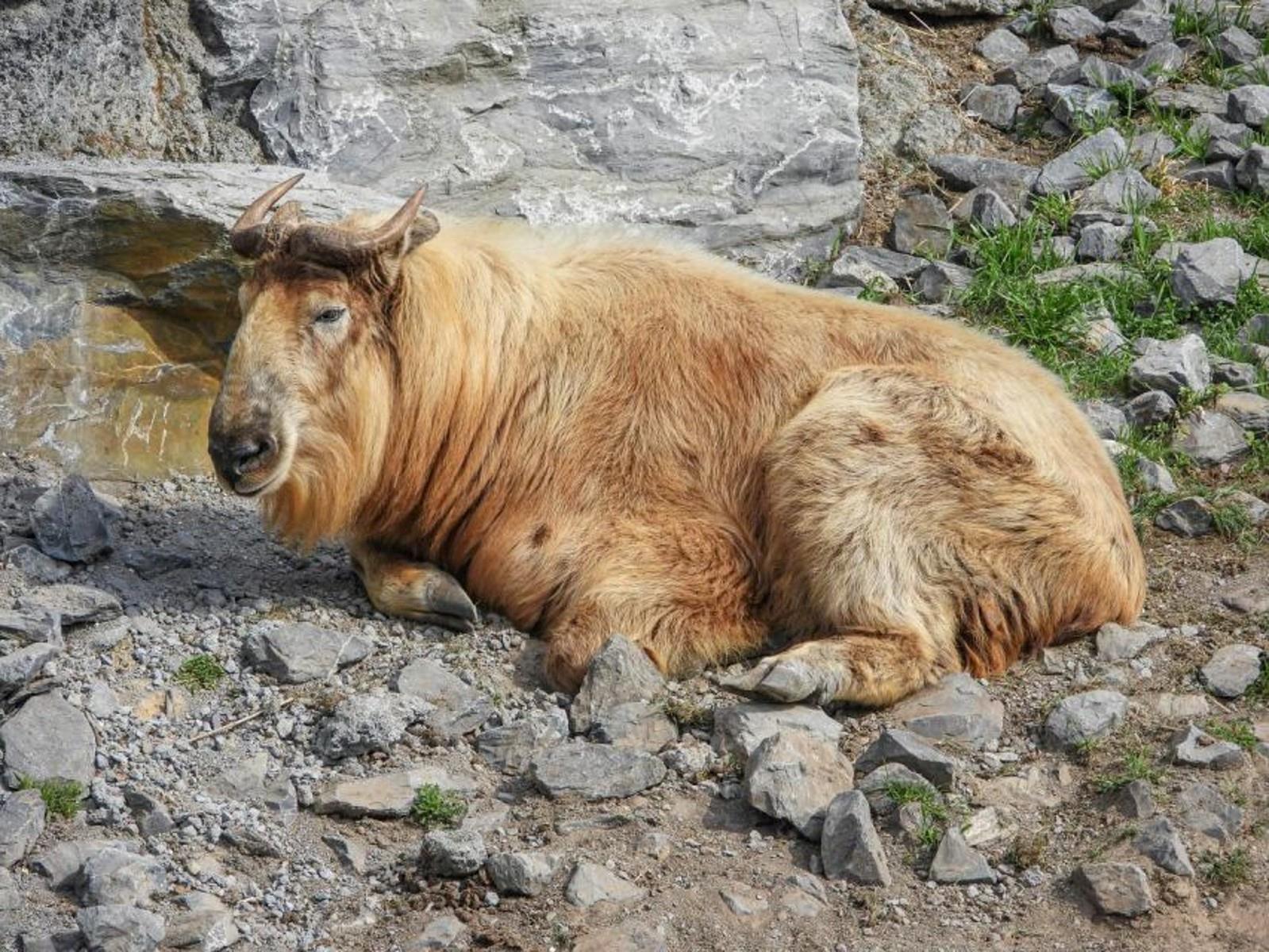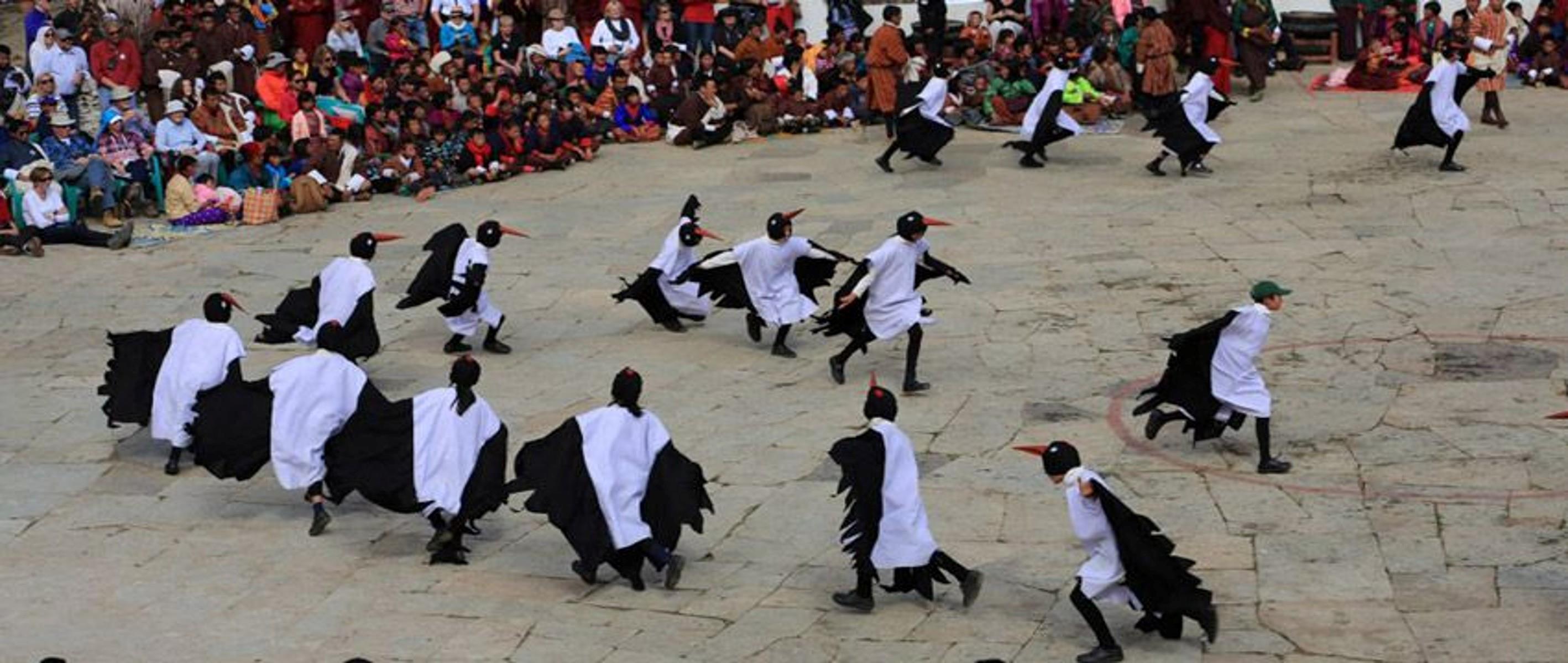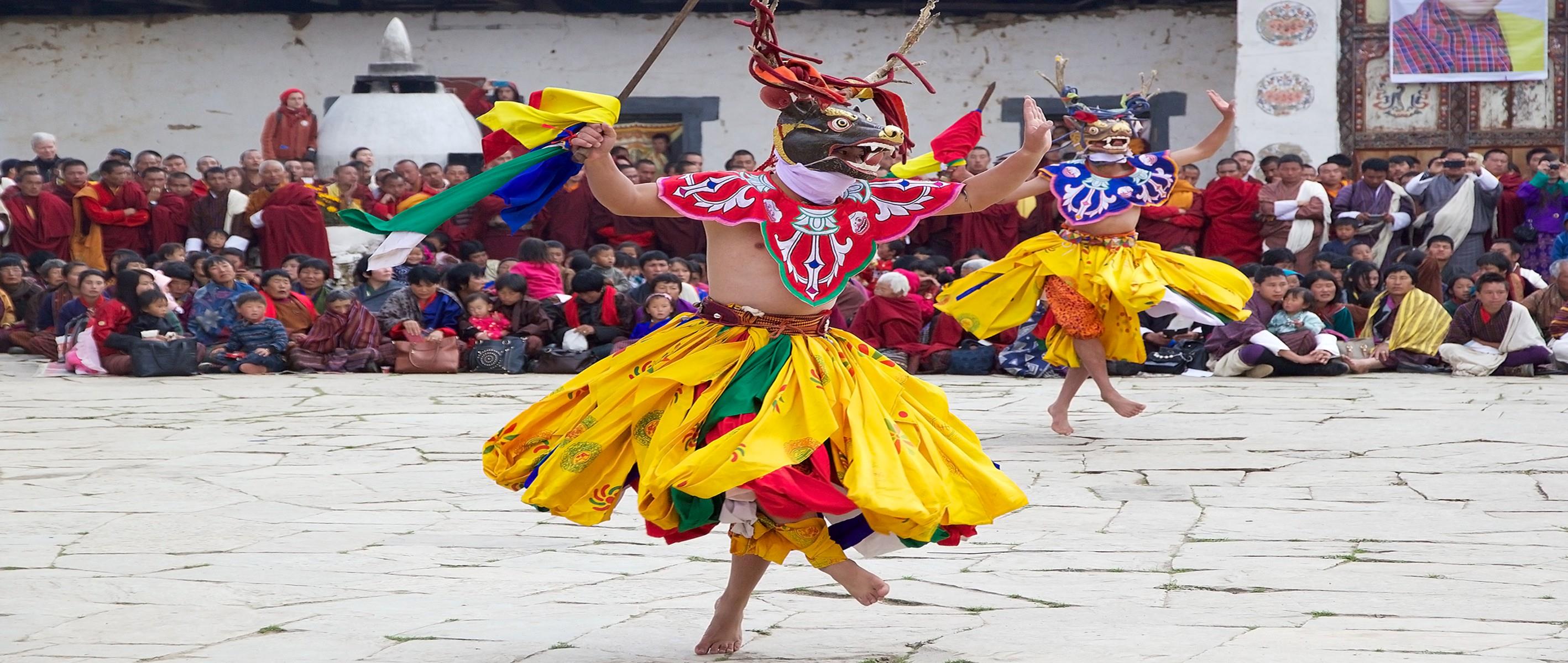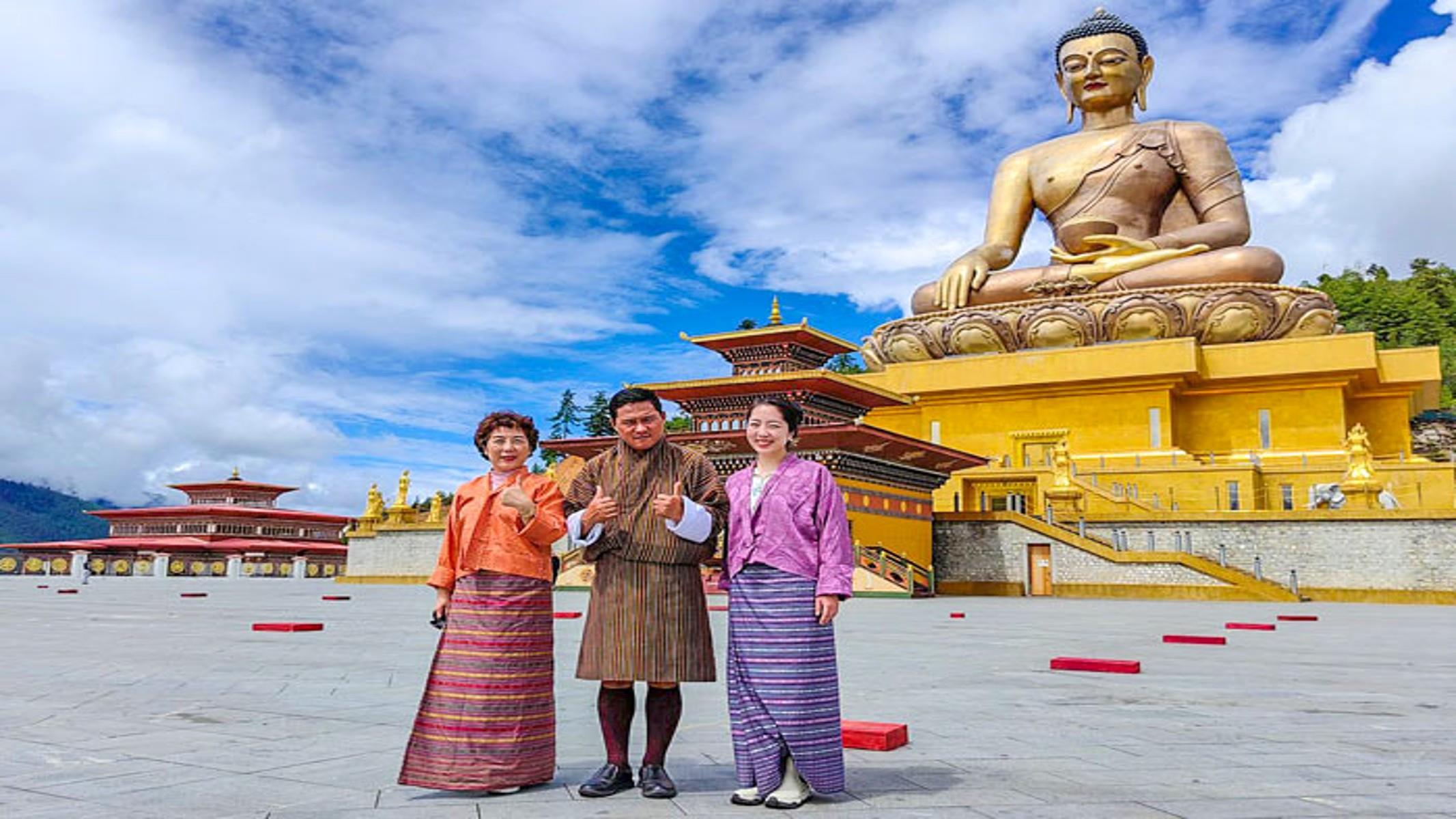This immersive experience invites you to witness the colorful pageantry of traditional masked dances, sacred rituals, and lively celebrations.
Things to do Tour to Paro Tshechu (Festival)
Highlights to see in Tour to Paro Tshechu (Festival)
Details
Duration
9 days
Language
Guide in Spanish and English
Price
Adultos (Adultos): 4,503.00 €
Availability and starting time
12:00 - Monday, Tuesday, Wednesday, Thursday, Friday, Saturday and Sunday
When to book?
You can reserve up to before the activity
Free cancellation
Cancel anytime for a full refund.
Included
Bhutan Royalties, tourists fees, Visa fees and taxes.
Accommodations in listed or similar hotels (pleasant hotels 3 star) during the tour.
All meals, including evening tea/coffee etc through-out the trip.
All land transfers, sightseeing with entrance fees
Bottled water in the vehicle and other camp services.
1 Participación en Premios Mensuales:
Ver Premios
Excluded
Travel insurance
Luxury hotel upgrades available at additional cost.
Expenses of personal nature
Drinks like beer, whisky, coke, fanta and Mineral water
Telephone and internet
Meeting point
Conditions
Is the interior of the monuments visited?
Exterior and interior of most named sites
Is the tour adapted for people with reduced mobility?
Almost fully adapted
Guaranteed departures without min of travelers
Yes
Are animals allowed?
Not
Activity recommended for children?
Not
Our promises
Best price guaranteed
Quick and easy reservation
Multilingual Customer Service
Secure payment
Contact us
Do you have any question?
Would you like this tour in private?
Reservation
Cancel or modify reservation


